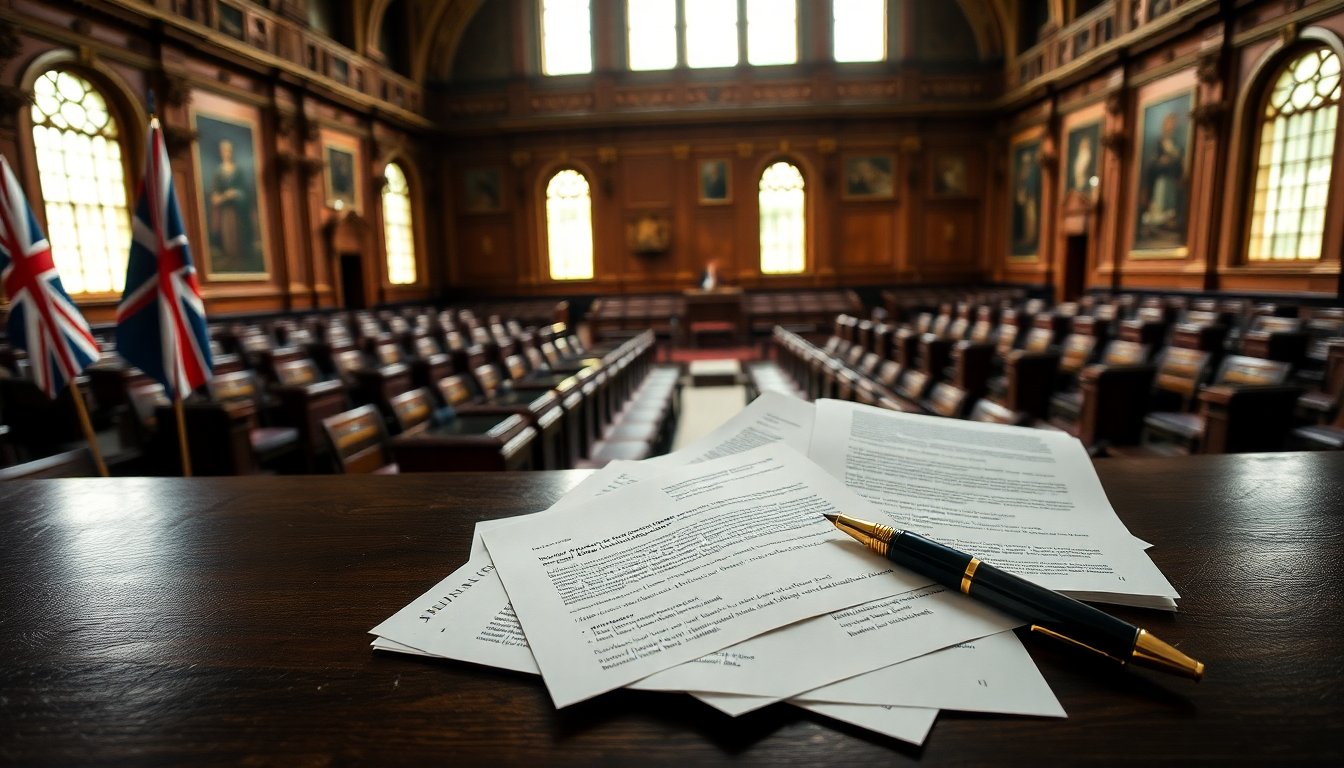Table of Contents
The situation surrounding Prince Andrew continues to evolve, particularly following the recent release of Virginia Giuffre’s book. This development raises important questions regarding the role of Parliament and the potential consequences for the Duke of York. As discussions unfold in Westminster, the discomfort among lawmakers about Andrew’s actions is becoming increasingly evident.
Parliament’s role in Prince Andrew’s ongoing saga
With Virginia Giuffre’s narrative now publicly available, the implications for Prince Andrew are considerable. The book explores her experiences and accusations against him, reigniting the debate over his past conduct and the monarchy’s accountability. Members of Parliament face a challenging task as they navigate public sentiment and the need for responsibility.
Public sentiment and parliamentary discomfort
Reports indicate that Prince Andrew has not paid rent on his Royal Lodge residence for over two decades, escalating pressure on Parliament to take action. This financial oversight may suggest a lack of respect for public funds, exacerbating tensions between him, the public, and the government. Lawmakers in Westminster are visibly uneasy, grappling with how to respond to the implications of Andrew’s actions while navigating the limits of their authority.
Implications for broader political parties
Beyond the discussions in Westminster, the political landscape is evolving, particularly with the upcoming by-election in Caerphilly. This event offers political parties a chance to assess their popularity among constituents. Their positions on the ongoing controversies surrounding Prince Andrew may significantly influence their campaign strategies.
Analyzing the Caerphilly by-election
As parties prepare for the by-election, they must evaluate how Andrew’s controversies might affect their campaigns. Candidates may need to address public concerns about royal accountability and the monarchy’s relevance in contemporary society. The results of the Caerphilly election could act as a barometer for public sentiment on these critical issues.
Polling insights and the Green Party’s rise
Recent public polling data reveals that the Green Party is gaining significant traction in terms of voter awareness and support. This development may impact the strategies of Keir Starmer and the Labour Party as they prepare for the COP summit in Brazil.
Voter engagement and environmental issues
The increasing visibility of the Green Party could prompt Labour to reevaluate its environmental policies. This reassessment is particularly relevant given the escalating urgency surrounding climate change. As voters engage more deeply with ecological concerns, the political discourse is set to evolve, compelling all parties to clarify their positions. This shift may ultimately redefine the agenda for the upcoming summit and shape the larger conversation about environmental responsibility.
The recent developments involving Prince Andrew, particularly following the release of Virginia Giuffre’s book, underscore the complex dynamics between royal accountability and parliamentary duties. As this situation evolves, both Parliament and political parties face the challenge of navigating these complexities. They must respond effectively to the public’s increasing demands for accountability and transparency.


